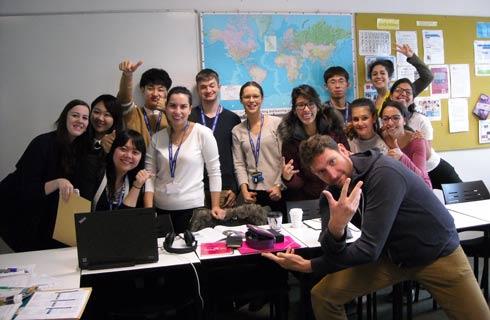- IDP China>
- 课程库>
- 计算机科学>
- 计算机与信息科学>
- 人工智能与机器人>
- Master of Mathematics in Computer Science - Artificial intelligence and machine learning
计算机科学数学硕士-人工智能
Master of Mathematics in Computer Science - Artificial intelligence and machine learning

学历文凭
Masters Degree

专业院系

开学时间

课程时长

课程学费

国际学生入学条件
IDP—雅思考试联合主办方

雅思考试总分
6.5
- 雅思总分:6.5
- 托福网考总分:93
- 托福笔试总分:160
- 其他语言考试:PTE (Academic) - 63 (writing 65, speaking 65)
CRICOS代码:
申请截止日期: 请与IDP联系 以获取详细信息。
课程简介
Artificial intelligence and machine learning are broad research areas within computer science that encompass a number of topics related to the design of computer systems that perform tasks conventionally associated with human intelligence. These areas overlap with several other research areas both within and beyond computer science, including algorithm design, information theory, statistics, optimization, scientific computation, human-computer interaction, and more. Machine learning is concerned with the analysis and development of methods to explore, discover, visualize, and model structure in data as well as to make predictions and decisions based on that structure. Data is often incomplete, noisy, non-homogeneous in structure and large in size (e.g., large number of observations or dimensions, or both). Special attention is paid to the development of computationally efficient (with respect to time and memory usage) algorithms. Research includes the mathematical and computational analysis of the statistical methodology, the development of new techniques, algorithms, and software, and the application of these to complex problems from other areas.
相关申请
 预科
预科 奖学金
奖学金 实习机会
实习机会 在校学习
在校学习 跨境学习
跨境学习 校园授课-线上开始
校园授课-线上开始 在线/远程学习
在线/远程学习
开学时间&学费
学费信息仅供参考,请与IDP联系以获取详细信息
| 开学时间 | 时长 | 学费 | 地点 |
|---|
学校排名

世界排名201
数据源:
泰晤士高等教育世界大学排名
关于滑铁卢大学

滑铁卢大学是加拿大滑铁卢市的一家著名大学,是一所以研究为主的中等大小的公立大学,创建于1957年。以数学、计算机科学、工程学而闻名。该校位于安大略省的西南面的滑铁卢市,占地面积约为1000英亩。滑铁卢大学成立至今,仅数十年便跻身加拿大名校之列,是加拿大发展最快的学校。2011年到2013年,该校一直稳居麦克林杂志评选的加拿大综合性大学排名的第三位,是北美地区最优大学之一,其数学,计算机科学和工程学科教学水平居世界前列。特别是做为北美地区第一个经认可建立数学系的大学,拥有世界上最大的数学系以及世界上最大的合作办学项目。学校共授予100多个本科学位专业,28种硕士及博士学位专业,学校的代表队曾多次获得ACM 国际大学生程序设计竞赛的冠军。
本校相关课程

系统设计工程哲学博士
学历文凭
Ph.D.
开学日期
课程费用总额


系统设计工程工程学硕士
学历文凭
Masters Degree
开学日期
课程费用总额


社会学文学硕士[仅课程]
学历文凭
Masters Degree
开学日期
课程费用总额


Doctor of Philosophy in Religious Studies
学历文凭
Ph.D.
开学日期
课程费用总额


运动机能学博士-工作与健康
学历文凭
Ph.D.
开学日期
课程费用总额


娱乐与休闲研究哲学博士
学历文凭
Ph.D.
开学日期
课程费用总额

其他相关课程

安大略大学机械工程技术高级文凭-机器人与自动化(可选合作公寓)
 康尼斯托加理工学院
康尼斯托加理工学院学历文凭
Bachelor Degree
开学日期
课程费用总额


机电工程技术高级文凭“自动化和机器人技术(可选合作社)
 百年理工学院
百年理工学院学历文凭
Bachelor Degree
开学日期
课程费用总额


机电工程技术员文凭-自动化和机器人
 百年理工学院
百年理工学院学历文凭
Bachelor Degree
开学日期
课程费用总额


安大略大学机器人与工业自动化研究生证书(合作社)
 康尼斯托加理工学院
康尼斯托加理工学院学历文凭
Graduate Certificate
开学日期
课程费用总额


机电和机器人文凭
 不列颠哥伦比亚理工学院
不列颠哥伦比亚理工学院学历文凭
Bachelor Degree
开学日期
课程费用总额


计算机基础证书
 德恒学院
德恒学院学历文凭
Bachelor Degree
开学日期
课程费用总额










